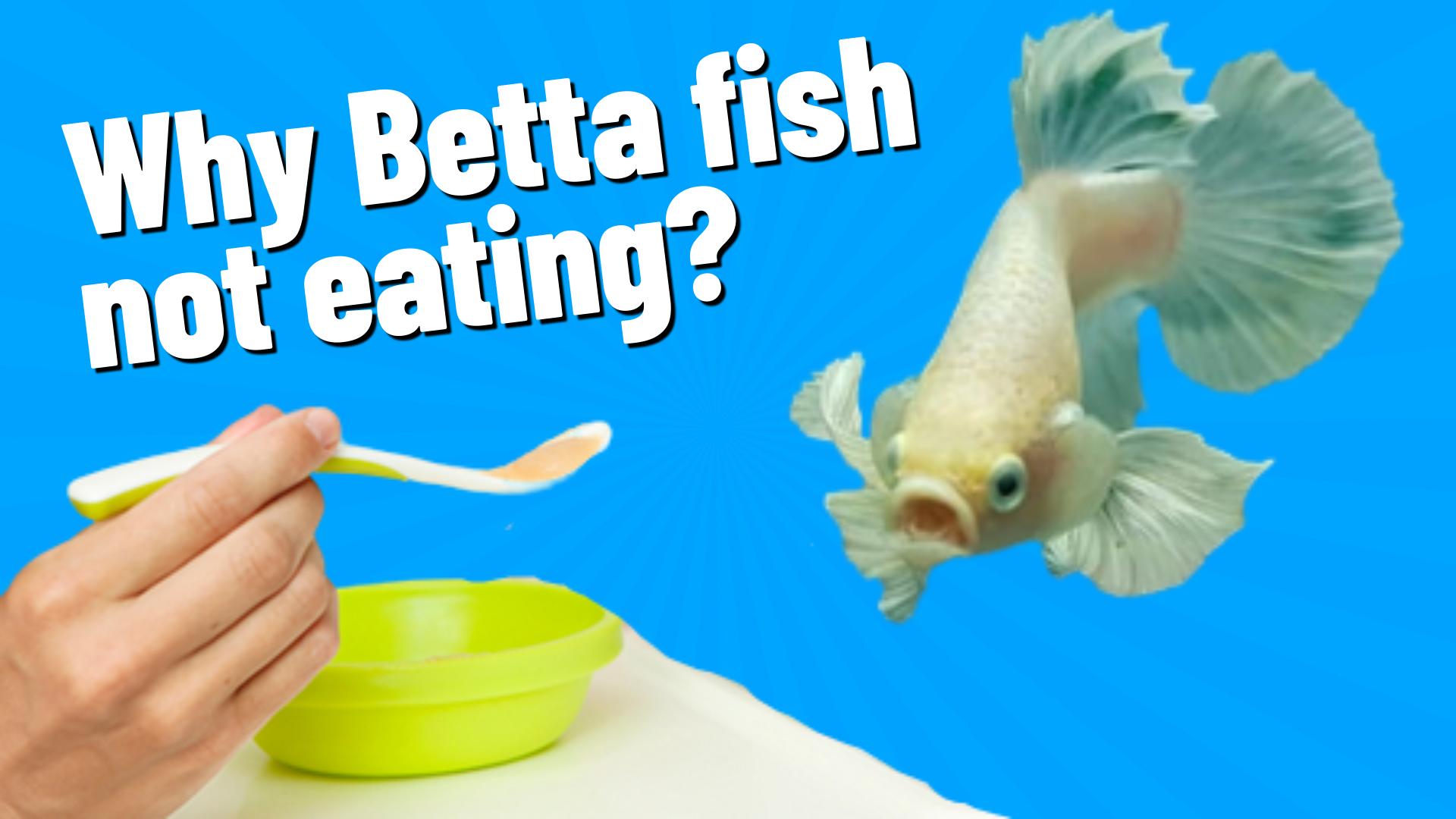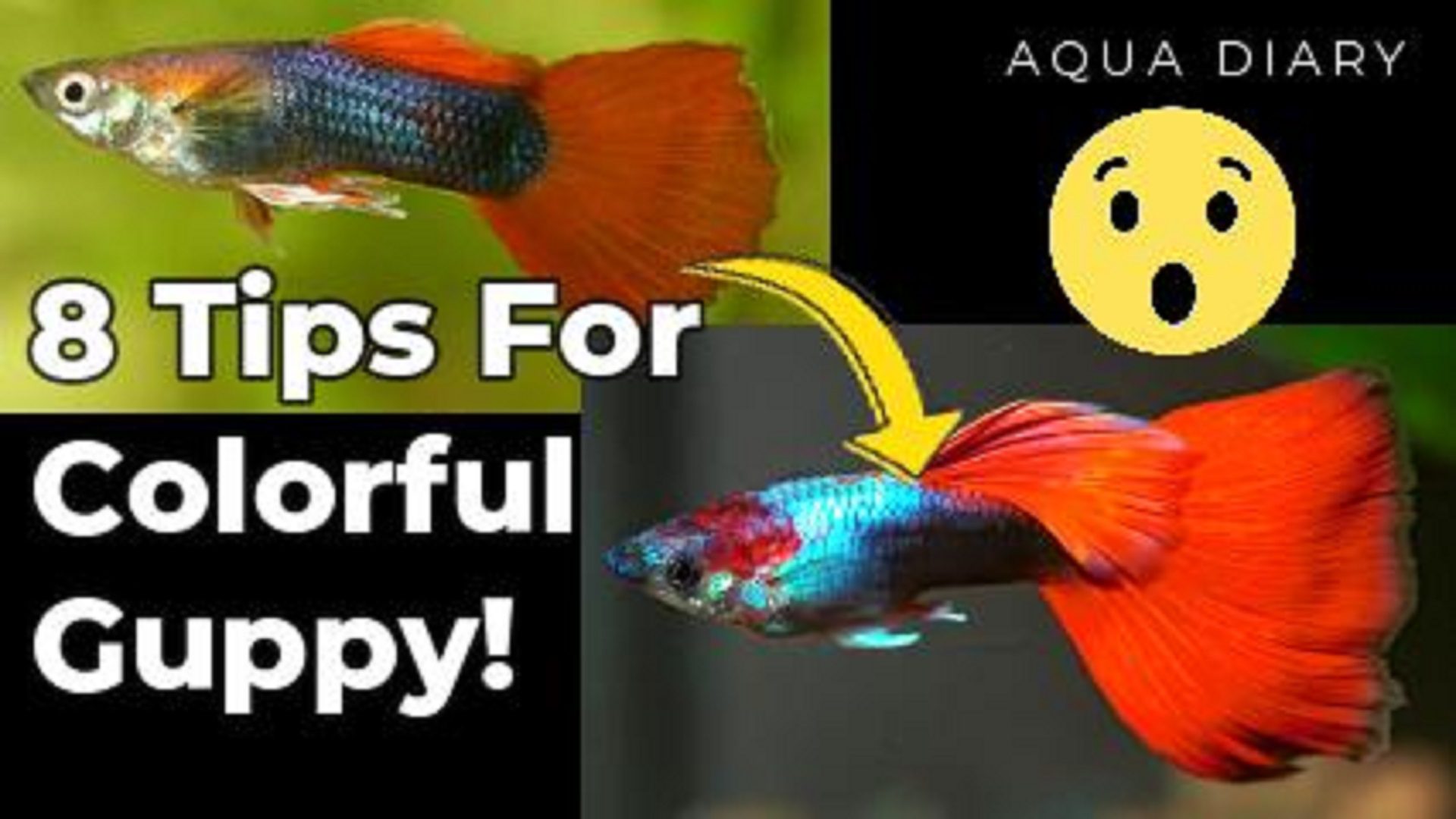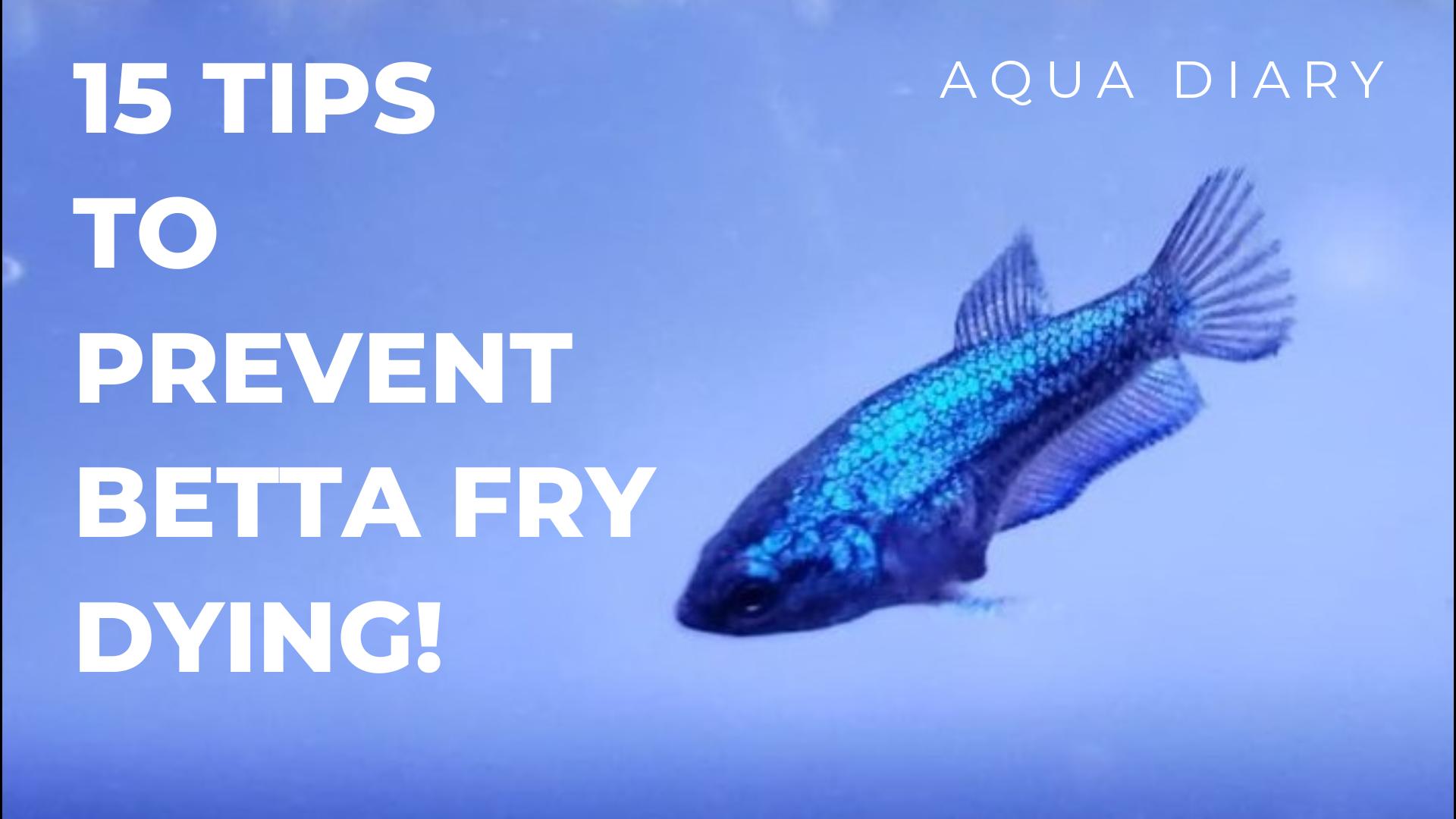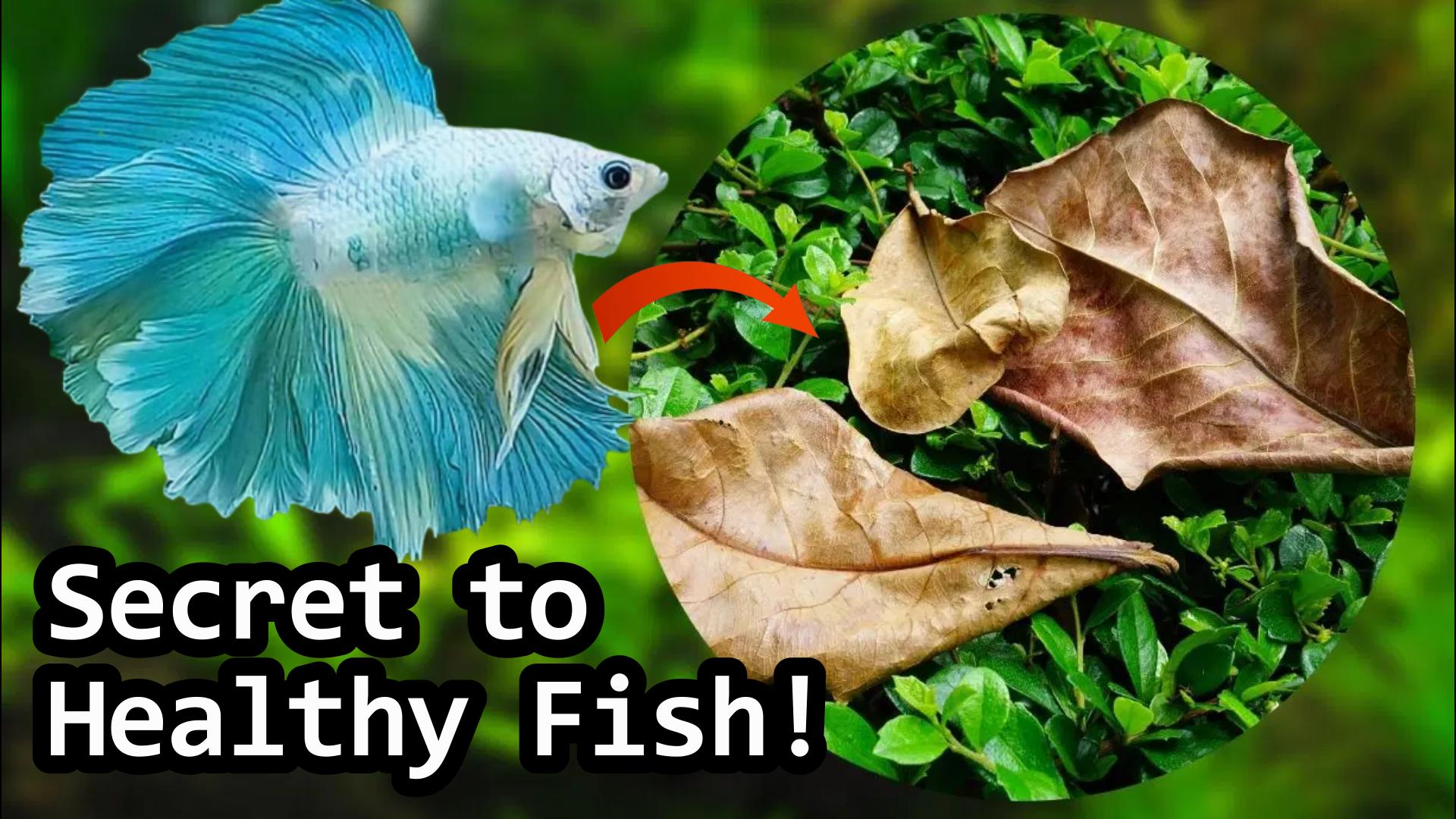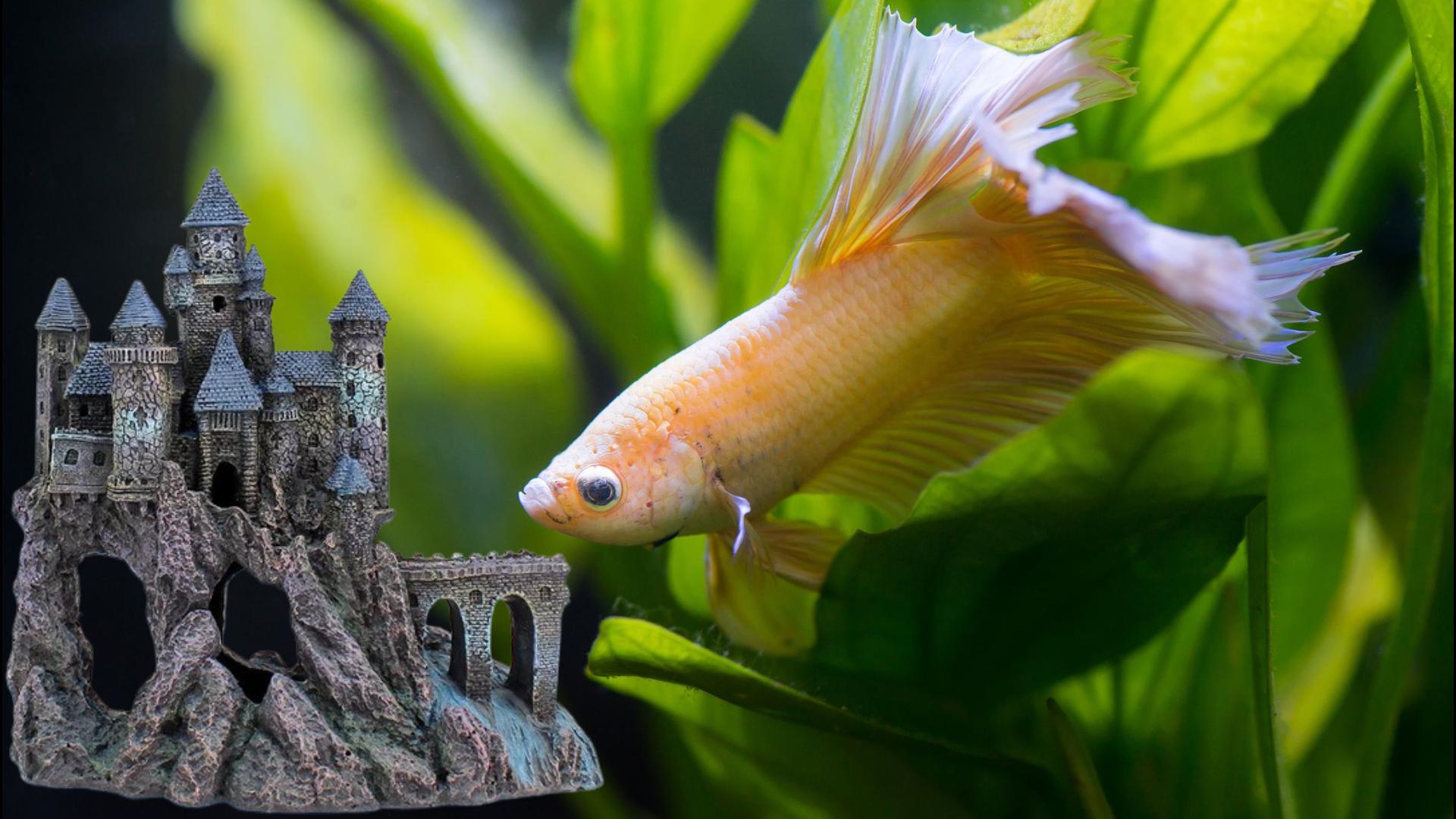There’s nothing more worrying than noticing your betta fish not eating. Having your pet fish in your house and not being able to feed properly is more concerning. This page covers all the possible causes of your Betta not eating and how to fix it with detailed tips and tricks
#1. Your Betta Is Being Fussy
Generally, this is one of the common reasons why your betta isn’t eating. If you switch from one type of food to another after feeding him for a while, he may take time to adjust which is commonly observed among betta fishes. The best way to figure out is to try feeding both types of foods. If he eats one without a problem, then he’s probably just being fussy.
You can easily solve this problem by only feeding your Betta what he enjoys, and getting rid of food he doesn’t like. While you may think this is a good idea, it could be more difficult in the long run. He can either be fed lots of new food at first until he isn’t fussy, or you can fast him for a couple of days. Once he’s fasted, give him the original food he didn’t like, and he should eat it.
It is far better to get your betta to eat as much variety of food as possible by giving different food options. If you are interested in knowing about the best betta food option, Check out our channel page or blog link at the description
#2. Food Is Frozen or Freeze-dried – Betta fish is not eating
If you place frozen or freeze-dried food directly into your betta’s tank without letting it thaw, it may never be eaten by your betta fish. If you don’t give it a chance to defrost or soften, your betta may just find it hard to eat them. In addition, remember that some frozen foods expand as they absorb water again.
If your betta eats it too fast, it may continue expanding, leading to constipation and swim bladder disease. The best way to defrost your fish food is by placing it in a small amount of water. Once it has completely defrosted, drop it into your tank and your betta will happily consume it
#3. Your Betta is under stress
It is also possible that betta skips the food due to stress. Watch your fish closely to figure out whether it’s caused by stress. If a betta lives in a small tank, with the wrong tankmates, or has few places to hide, it can easily become stressed.
Having Bright lights, sudden changes in scenery, or too much activity in the tank can also stress the fish. It is a good idea to keep the tank calm and not too bright. Also having plants and other hiding places give them a sense of security. Giving them more tank space and keeping them alone, or with very peaceful tankmates who won’t nip at their fins are great ways to reduce the stress
#4. Betta doesn’t realize its food – Betta fish is not eating
Not eating can also be caused by the fact that Betta fish don’t know they are fed with food, especially if they are new to the tank. This is commonly seen with pellets and flakes. When bettas are with their breeders, they are usually fed a mix of living, frozen, and freeze-dried food. This is the healthiest diet a betta because it matches what they eat in the wild.
Once you feed them pellets or flake food, it will be so alien to them that they won’t even recognize it as food. In such a case, you should keep introducing them to the food until they realize they can eat it. This usually takes 2-7 days. If they still don’t eat it after this time, you may be dealing with a fussy betta. Never let a Betta go more than 3 days without food. At this point, you’ll be doing more harm than good. So always have backup food on hand that he will eat just in case.
In addition, if your betta does not consume the food within 10 minutes, it should be removed from the tank. If food is left in the tank, it will cause more ammonia to build up throughout the tank which results in betta fins rots and sickness.
#5. Betta illnesses
If stress doesn’t seem to be the problem, Betta’s illness can also affect their ability to eat. Look for signs of distress, such as lethargy or unusual swimming patterns. Also, white spots on the body or fins, bloating, tattered fins, or sores are other symptoms to watch out for. Diseases such as bacterial, fungal, or parasitic should be treated differently
Make sure the water is as clean as possible and within a comfortable temperature range to ensure the health of your fish. Then, research your fish’s symptoms and see what treatment will make him healthy again.
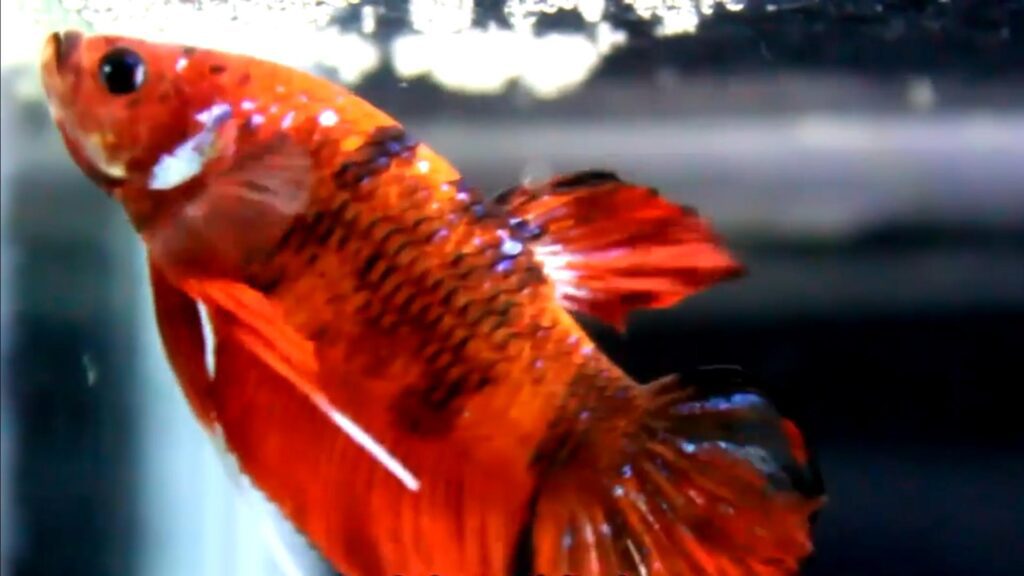
Nitrate poisoning is also one of the common reasons why Betta fish refuse to eat and become lethargic. If Nitrate levels in aquarium water rise above 20 PPM, or if they build up over time, your Betta fish might get sick. If this happens, the Betta will have no desire to move, and will likely prefer to lie on the bottom of the tank. Nitrate toxicity has also been linked to swim bladder disease, which causes a Betta to swim sideways or even upside-down. You should act quickly if your Betta fish have such symptoms. Check out our channel blog for treating betta fish on Nitrate or Ammonia poisoning with how to treat steps.
#6. You’ve Got A New Betta
New Bettas are stressed from their move and being in a new environment. A betta needs some time to settle, especially if it was shipped rather than received from a shop. The easiest way to deal with this is to give your betta some time to settle. If you turn off the lights for a few days and feed him in the morning and evening, this will help them get back to normal.
#7. Overfeeding your Betta – Betta fish is not eating
It can happen that your betta is eating just fine and you don’t even realize it. The stomach of a betta is about the size of his eye, so if you give him too much food then he won’t be able to eat it all. It’s easy to think he’s not eating food when it’s floating at the surface of the tank, but you may simply feeding too much
You shouldn’t feed him more than 3-4 pellets of food, or the equivalent, twice a day. As a general rule, make sure he doesn’t consume more food than the size of his stomach.
#8. Poor quality food or an Unbalanced diet – Betta fish is not eating
In most pet stores, the food you buy is incredibly cheap. And as you would expect, cheap food is made from cheap ingredients. Sometimes, the food quality may be the cause of a betta not eating. Do they go for the food but back off when other fish are around? Are they sampling it and losing interest? This indicates that the betta is not interested in the food, or food quality is poor.
On the other hand, feeding them the same thing makes them bored. It is also good to include live, frozen, and freeze-dried food in his diet to ensure a balanced and healthy diet. Changing the food for your betta doesn’t have to be expensive or time-consuming. I use betta pellets and freeze-dried daphnia mixed with live food every so often. You only need to buy the food once, and it will last a long time
#9. Problem With The Water Temperature
Betta fish may sometimes refuse to eat due to the high or low temperature in their tank. Bettas are cold-blooded, which means their energy is based on the temperature maintained in the tank. A tank that isn’t warm enough for your betta will cause lethargy and slow metabolism. If your betta’s metabolism slows down, it will take him longer to digest his food, so he will not eat as much
While you may think water temperature isn’t a major issue, cold water can result in temperature shock, which is deadly for bettas. Betta tanks must have a water heater and a temperature between 78°F and 82°F. Even if you live in a hot country it only takes one cold night to drastically change the temperature in smaller tanks
#10. Water-Quality Changes
Bettas are often housed in smaller aquariums, and this means that the tank and water can become dirty very quickly. Dirty water or wastes in the bottom of the aquarium can cause chemicals to spike, including ammonia, which is toxic to fish. Over time, the chemicals can cause serious health problems, and one of the first signs is a lack of appetite
Overfeeding leads to an accumulation of waste, so avoid overfeeding. You can also scoop out any waste at the bottom of the tank and perform partial water changes every week. You should use a filter to remove waste, but you should also provide a place for beneficial bacteria, which helps to consume chemicals and grow. An aquarium test kit can help you keep track of the chemical levels and ensure everything stays balanced
The most common causes of problems with water quality are normally ammonia spikes. However, any chemical that is introduced into the tank may also make your betta not eat. Ammonia can build up in an aquarium because of undecomposed organic matter, such as uneaten food and fish waste. Other signs of ammonia poisoning in Betta fish include red gills and rapid breathing. If you see these symptoms, make sure your aquarium’s water is clean and change it as necessary
#11. Betta Fish Spitting Food Out – Betta fish is not eating
If you notice your betta is spitting out food, don’t panic right away, especially if he’s new or young. Most likely, it’s not a problem. The food is likely either too big for him to eat all at once or food is too solid to absorb well in water. It is also possible that he is just playing or fussy.
however, It could be an indication of something worse. You should keep an eye on your betta to make sure that the problem isn’t something serious, such as constipation or a parasite. When you think your betta has either of these diseases, you should start treating him as soon as possible and move him to a quarantine tank if the disease is parasitic
The Conclusion Note
In conclusion, If you suspect that your betta fish is not eating, monitor their behavior before you rush off and start making changes. it’s important to be sure there is a problem. Make sure you are not overfeeding as this can lead to the impression that your betta isn’t eating
Your betta fish not eating for an extended period will indicate the seriousness of the problem. If they have been taking a meal now and then, it’s probably not too serious. Avoid throwing freeze-dried or frozen food directly into the tank. Always take some tank water in a small container and put the frozen food in it. This will speed up the process and quickly get the food ready to be eaten by your fish.
Check the quality of the food and expiry date; do try to verify of diet to keep them healthy. that’s all we have for today. Hope you enjoyed this topic.
What was the problem you have faced with Betta’s eating habits, please leave a comment below. See you on the next topic.
Why Betta fish Spitting out Food?
Now, let’s look at various reasons why your betta fish may spit out the food. There are many reasons why betta fish may spitting their food. In today’s post, I will be discussing why do betta fish spit out food? What are the possible reasons and how can we prevent them?
1. The food is too big
Betta fish spit food out when it’s too big to swallow. As you may have heard from many betta keepers, their stomach is roughly the size of their eyeball. In many cases, they’ll need to spit their food and take small bites instead of consuming it completely. You may think they are spitting. But In reality, they may actually break the food into small pieces.
2. Your Betta is too small
If you’ve just purchased your betta recently, he may still be young. Breeders usually feed young betta fish live food for faster and healthier growth. It is possible that your betta is not be eating pellets or flakes because they have never seen pellets or flakes before. Another possibility is that the food is too big to fit in your young betta’s mouth. If you think either one is the case, you should try mixing up the food until you find something your betta likes. Once you find out what your betta eats, slowly introduce other foods into his diet.
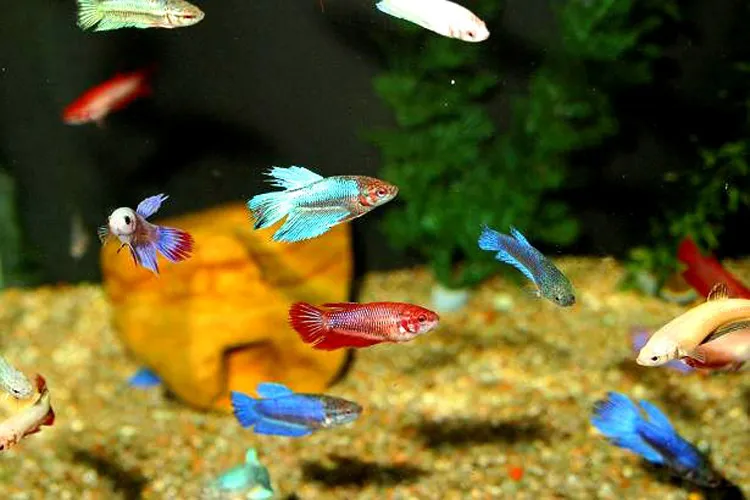
3. Food quality is poor.
In reality, many betta food packages you get in the pet store are incredibly cheap in quality. If your betta doesn’t eat, you may need to check the quality of the food. If you are interested in knowing what betta food products I personally use and recommend, I have pinned them in the comments and description. It is also best to vary their diet by providing live, frozen, and freeze-dried foods to them. Don’t forget to check your food’s expiration date. I can’t believe how many times we overlook the expiration of food as small containers last for a long time. I use betta pellets and freeze-dried daphnia mixed with live food for my betta fish.
4. You Have A New Betta
When you have a new betta it’s common to see them refuse to eat. Especially if you receive your betta through shipment and travel for a few days in a tiny package, your betta may be stressed. It’s common for new bettas to refuse to eat, so you don’t need to worry too much for the first couple of days. The easiest solution here is to give it time to settle. Keep the lights off for a couple of days and feed him once a day. If he doesn’t want to eat, remove the food after 10 minutes.
5. It May Be A Parasite
Although betta fish rarely have parasites that prevent them from eating, these parasites can make them unable to swallow food, so instead, they’ll just spit it out. If you think your betta is suffering from a parasite, you should move him to a quarantine tank so your betta won’t infect other fish in your tank. Parasite issues can be identified by symptoms like abnormal swimming, lethargic, and lack of appetite. We have a full blog on this topic with treatment steps. Check it out, if interested.
6. Food is hard or frozen
I have also observed that betta fish spit food when it is difficult to bite. It is best to check the hardness of your pellets by squeezing them in your hand. If you can’t break your pellets with your hand, it’s hard for betta fish to eat as well. It’s better to soak them for a couple of minutes before feeding. Also any frozen food must be kept at a normal temperature for sometime before feeding to your betta. Usually, I leave frozen food in warm water for a few minutes before feeding my fish.
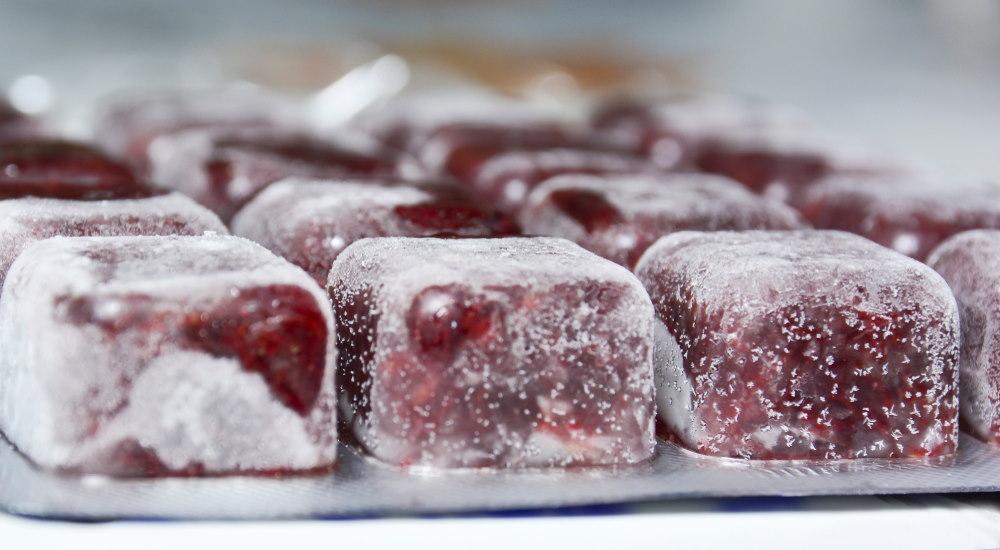
7. Your betta is stressed
If there aren’t enough hiding places, or aggressive tank mates, your betta may spit out his food due to stress. The best thing you can do is add more hiding spots for him to feel safe. As well, you should remove any fish that could bully him.
8. Your Betta Is Ready To Breed
If your female betta doesn’t eat, it may be because her belly is full of eggs and ready to breed. I have seen females lose interest in food when they are full of eggs and looking for mating, but it is not common for all females. In such a case, just keep your betta comfortable by raising the water temperature to around 80°F, they should settle down and eat after a couple of days.
9. May be digestive issues
If your betta fish is spitting food and has a bloated belly, he is likely suffering from digestive issues. This is common for betta fish especially when beginners overfeed them. If you think it’s constipation, you will see other symptoms such as your betta not being able to stool, bloated belly and not swimming well. If your betta is constipated, it’s best to fast for 2-3 days to help him move his bowl. I have in-depth post of betta fish constipation, including treatment steps to refer to.
10. Fussy Betta – Betta Fish Foods
Some betta fish are just fussy and play with their food or may not even know you feed them to eat. Aside from the food being too big, this is probably the most common reason why your betta spits out food. If this is the case, keep feeding him what you have. He might not eat it at first, but the more hungry he is, the more likely he will try it. Keep in mind that if your betta does not eat food within 10 minutes, you should remove it from the tank so that it won’t spoil the water conditions.
What should I do if my betta fish is not eating?
If your betta is not eating, here are some things you can do.
Test the water for temperature, pH, and ammonia levels. Make sure the water is clean and uncontaminated. If you suspect your betta is overeating, adjust the feeding schedule. Feed small portions of food twice a day, and remove any uneaten food after a few minutes.
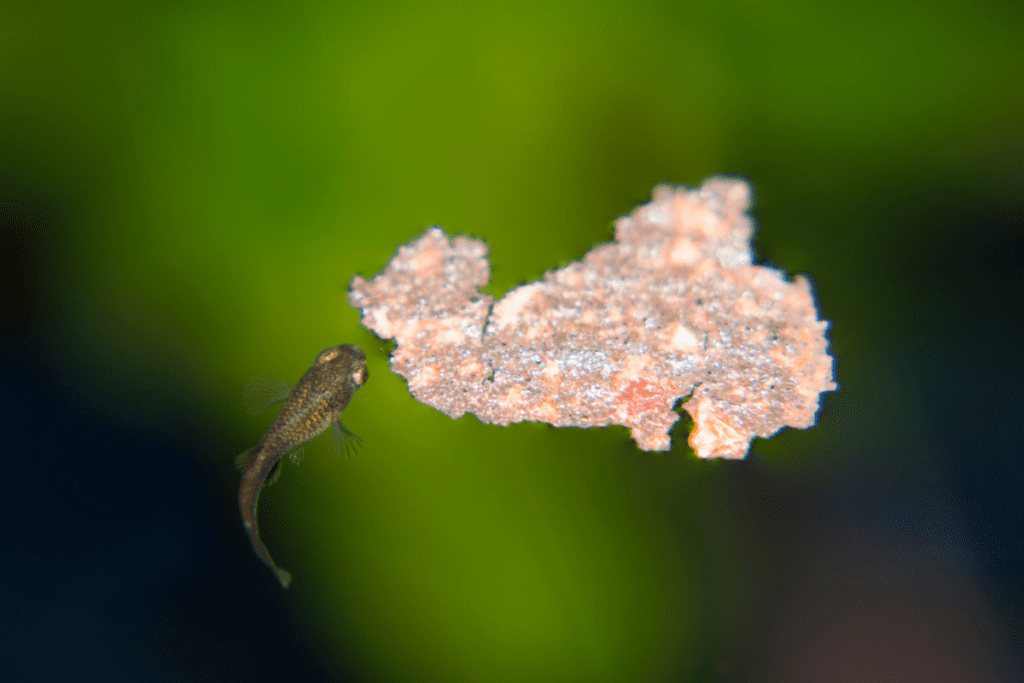
If you just got a new betta fish, give it a few days to settle in. If you are buying your fish from a breeder, ask what kind of food they ate before you bought them. Try changing the type of food you feed your betta. Bettas enjoy a variety of foods, including pellets, flakes, freeze-dried worms, and live food. If you suspect your betta is sick, quarantine it in a separate tank to prevent disease spread. Monitor its behavior and treat it with aquarium salt or appropriate medicine based on sickness. Reduce any stress factors that might affect your betta. Avoid overhandling, provide hiding places, and make sure the tank is big enough for your fish to swim comfortably.
If you notice your betta fish spitting food out, then in most cases, there is nothing to worry about. But make sure your betta is not suffering from constipation or parasites. If you think it’s either of these conditions, you should start treatment right away. If you want to know more about what betta fish can eat you should definitely check out this video on the best food for bettas! It will give you in-depth detail on various betta fish food types including what to buy and what to avoid!

